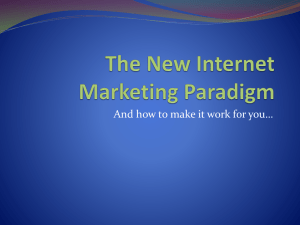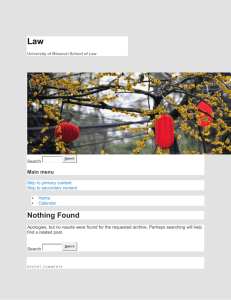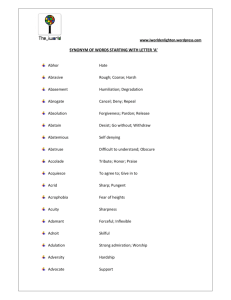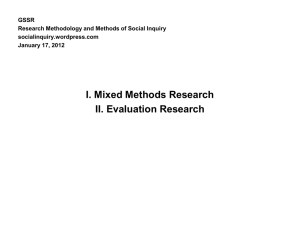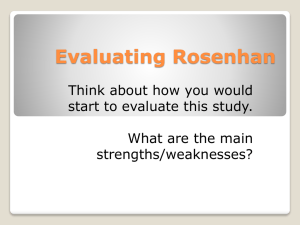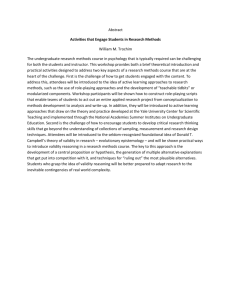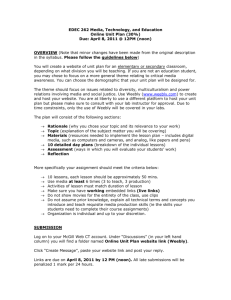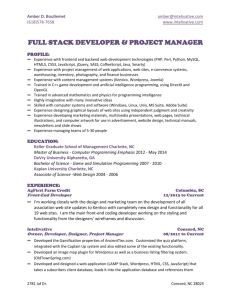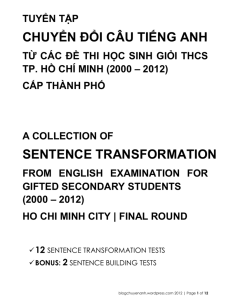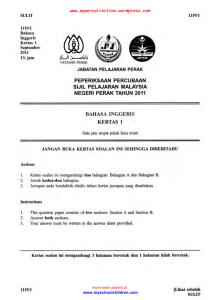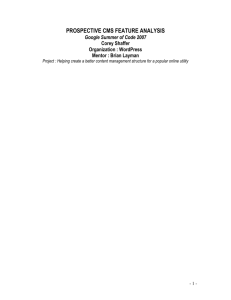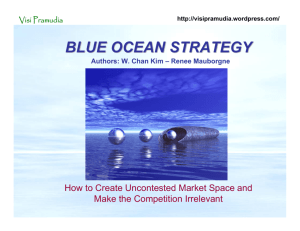Weblogs, PhDs and Google-generated concept lists
advertisement
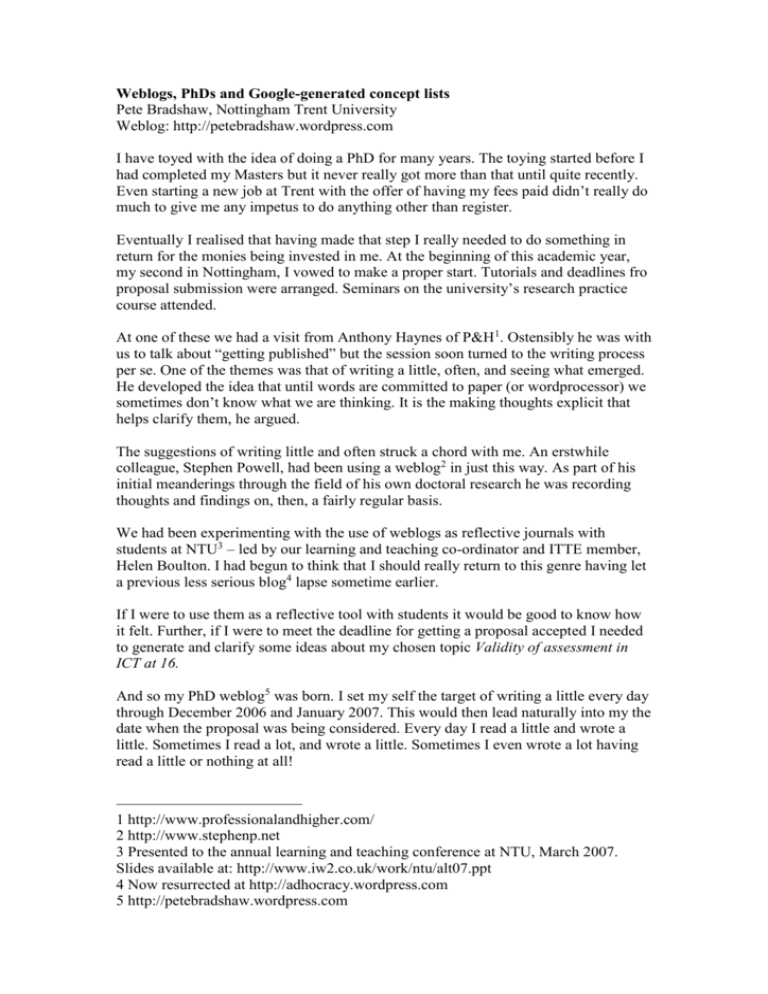
Weblogs, PhDs and Google-generated concept lists Pete Bradshaw, Nottingham Trent University Weblog: http://petebradshaw.wordpress.com I have toyed with the idea of doing a PhD for many years. The toying started before I had completed my Masters but it never really got more than that until quite recently. Even starting a new job at Trent with the offer of having my fees paid didn’t really do much to give me any impetus to do anything other than register. Eventually I realised that having made that step I really needed to do something in return for the monies being invested in me. At the beginning of this academic year, my second in Nottingham, I vowed to make a proper start. Tutorials and deadlines fro proposal submission were arranged. Seminars on the university’s research practice course attended. At one of these we had a visit from Anthony Haynes of P&H1. Ostensibly he was with us to talk about “getting published” but the session soon turned to the writing process per se. One of the themes was that of writing a little, often, and seeing what emerged. He developed the idea that until words are committed to paper (or wordprocessor) we sometimes don’t know what we are thinking. It is the making thoughts explicit that helps clarify them, he argued. The suggestions of writing little and often struck a chord with me. An erstwhile colleague, Stephen Powell, had been using a weblog2 in just this way. As part of his initial meanderings through the field of his own doctoral research he was recording thoughts and findings on, then, a fairly regular basis. We had been experimenting with the use of weblogs as reflective journals with students at NTU3 – led by our learning and teaching co-ordinator and ITTE member, Helen Boulton. I had begun to think that I should really return to this genre having let a previous less serious blog4 lapse sometime earlier. If I were to use them as a reflective tool with students it would be good to know how it felt. Further, if I were to meet the deadline for getting a proposal accepted I needed to generate and clarify some ideas about my chosen topic Validity of assessment in ICT at 16. And so my PhD weblog5 was born. I set my self the target of writing a little every day through December 2006 and January 2007. This would then lead naturally into my the date when the proposal was being considered. Every day I read a little and wrote a little. Sometimes I read a lot, and wrote a little. Sometimes I even wrote a lot having read a little or nothing at all! 1 http://www.professionalandhigher.com/ 2 http://www.stephenp.net 3 Presented to the annual learning and teaching conference at NTU, March 2007. Slides available at: http://www.iw2.co.uk/work/ntu/alt07.ppt 4 Now resurrected at http://adhocracy.wordpress.com 5 http://petebradshaw.wordpress.com As I threw words furiously at the screen I was obliged, by the Wordpress interface, to assign keywords to each entry. This was helping me map out my territory. In doing so I was also exposed to a tool that collected statistics about the viewing of, and linking to, my blog. Every day I got a little bit of satisfaction from knowing that other people were reading what I was writing – after all PhD theses aren’t often read by many. In amongst all of these stats were the search terms that had been put into Google (and other websites) and which had someone reading my blog. Over the days and weeks I noticed that these terms were beginning to develop into an alternative map of the concepts I was writing about. It was almost as if my keywords were like an autobiography and these were the biographies presented to me by many anonymous readers. At the end of the two months I decided to collate these two sets. The results were very interesting and may be seen in full in a particular post on my weblog6. `to give a flavour of how his auto-generated set of concepts is helping me see what I am thinking, let’s consider my keyword ‘validity’. To date I have written nine posts that I have categorised with this word. The list of searches gives a much richer flavour. Included in the list for this concept are authentic assessment validity reliability meaning of valid in assessments shifting conceptions of validity validity knowledge transfer vignette and many others. This set gives me an insight into what I might really be writing about. What is fascinating though is to type these searches myself into Google, Google Scholar or our libraries journal e-search tool to see what other references are returned. Here is a way of widening my net and, hopefully, covering the domain more thoroughly. Rather than wandering through the labyrinth of ideas with only my single torch to guide me I now have a multitude of unknown guides leaving their footprints to help me find new paths of enquiry. 6 http://petebradshaw.wordpress.com/2007/02/01/developing-a-concept-map/
